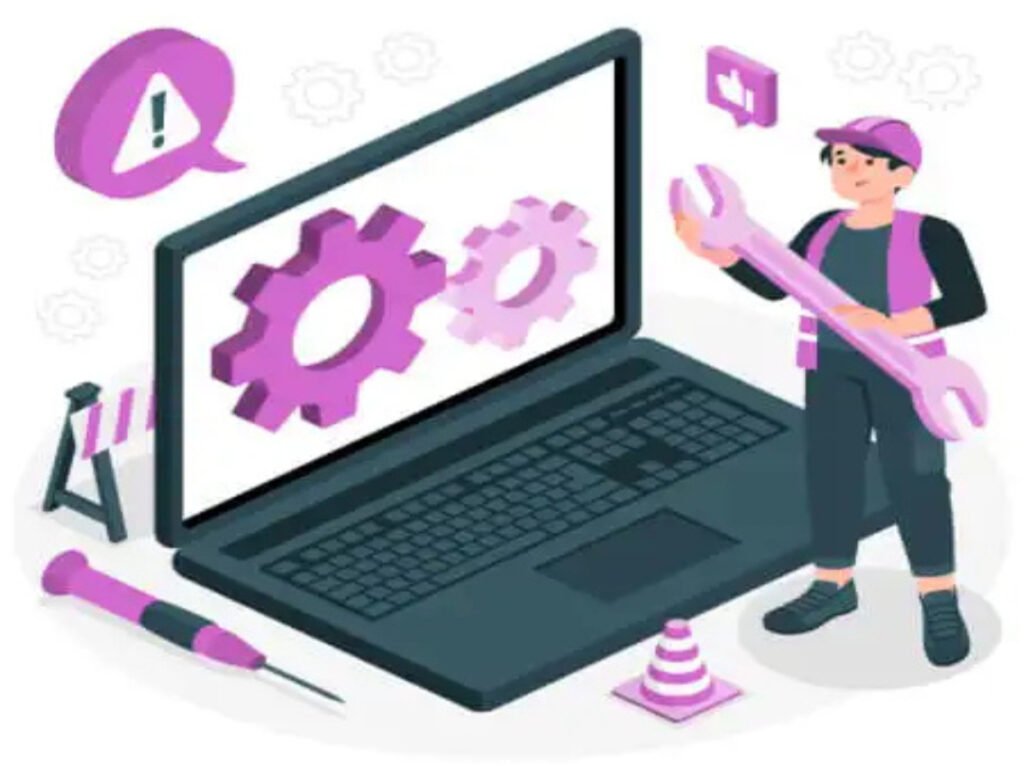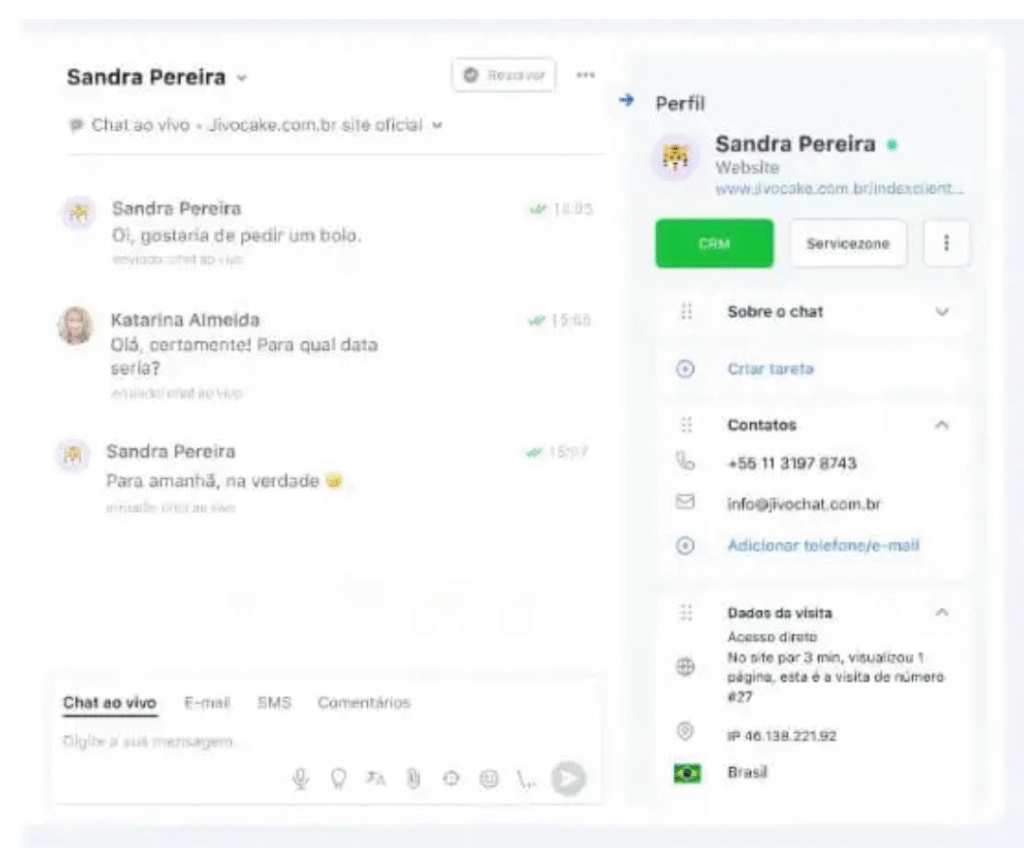Working as a technical support operator can be a great path for those who want to start a career in the technology sector. With the right qualifications and commitment, it is possible to advance in the profession and gain increasingly better opportunities in the market.
Technical support plays a key role for companies that rely on technology in their daily operations. Therefore, understanding the responsibilities of this professional and the possibilities for career growth is essential for those who want to enter this segment.
In this article, we will explain what a technical support operator does, how to take the first steps in the profession, and which courses can help you get trained. Check it out!
What is a technical support operator?
The technical support operator is the professional responsible for helping users and companies resolve issues related to software, hardware, networks, and systems.
They may work on-site or remotely, ensuring that devices are functioning properly and helping customers use technological tools efficiently. But what are the main duties of this role?
This position is responsible for identifying and correcting technical faults and providing support by phone, email, or chat. Other responsibilities include:
- Perform installation, configuration, and updating of software and systems;
- Contribute to the maintenance of networks and equipment;
- Prepare documentation to optimize future service calls.
How to start working as a Technical Support Operator?
The technical support sector is an excellent path for those who want to work with technology and customer service. With constant training and improvement, it is possible to develop a stable and promising career in this area.
To get started in this field, it is essential to have computer knowledge and interpersonal skills that facilitate interaction with customers and effective problem solving. Steps to enter the
career of Technical Support Operator:
- Education and training: Although some positions accept candidates with a high school diploma, technical courses or degrees in areas such as Information Technology and Information Systems can be a differentiator.
- Professional training: Institutions such as SENAI offer courses focused on IT technical support, providing practical learning essential for day-to-day work. In addition, platforms such as Udemy, Alura, and Coursera offer free and paid options for technical improvement.
- Skill development: In addition to technical knowledge, it is essential to improve communication, problem-solving, and customer service skills.
- Certifications: Obtaining industry-recognized certifications, such as ITIL, CompTIA A+, or Microsoft Certified, can increase your chances of employability and highlight your professional profile.

If you want to specialize and enter the market as a technical support operator, an excellent option is the Technical Support in Practice Course.
This course was developed for those who are looking for a job in the support area or already work as an IT technician, support analyst, infrastructure analyst, network analyst, or field technician.
There are no prerequisites for participation, making it ideal for both beginners who want to enter the technology sector and professionals seeking to improve their skills and optimize their day-to-day performance.
In this course, you will learn essential MS-DOS commands, how to install printers via executable and IP, how to create virtual machines, and how to format computers.
You will also learn everything about diagnosing and solving common IT problems. As well as configuring and managing Active Directory (AD), setting up emails, and resolving frequent failures.
In addition to technical content, the course also provides guidance on how to prepare for IT interviews, including tips on posture, communication, practical tips for improving customer service, and what to say (or avoid saying) during the selection process.
All of this will be available in 10 hours of on-demand video. The course also offers seven downloadable materials, lifetime access, and a certificate of completion.
Where can I find job openings for Technical Support Operators?
The demand for technical support professionals continues to grow due to the digitization of business processes. This position is essential in various sectors, such as technology companies, call centers, financial institutions, government agencies, and industries.
To find opportunities, it is essential to explore different job search channels, such as job sites, social networks, freelance sites, and official company portals.
The most commonly used platforms include:
- Job platforms: LinkedIn, Indeed, Catho, and InfoJobs;
- Social media: Facebook and Telegram groups focused on technology;
- Freelance work websites: Fiverr, Workana, Freelancer, and Upwork, for those looking to work independently;
- Official company pages: Many companies post job openings directly on their websites.
The market values professionals with certifications and experience, which can increase the chances of securing good opportunities.
The most common requirements for the role include a high school diploma (although some companies require technical or higher education in IT), knowledge of networks, operating systems, and digital security, as well as interpersonal skills such as effective communication and customer service.
The ability to solve problems quickly and work under pressure are also important differentiators. With the right qualifications and a strategic search, it is possible to enter and grow in the field of technical support.
Types of technical support operators
Technical support operators can be made available in three different ways: on-site, remote, and in the field. The choice of the most appropriate type depends on the company’s needs, and a specialized partner can assist in this decision with a detailed assessment.
For easier understanding, check out the main features of each support model.
On-site Support
This type of support involves the presence of an IT professional working directly at the company, allowing for closer monitoring and a quick response to problem solving.
It is an ideal option for medium and large businesses that have a consolidated IT structure or a high volume of calls. In addition to daily maintenance, the professional assists in strategic decision-making about technology and ensures the security of company information.
Field Support
Field service is geared toward more complex issues that require the presence of a technician on an ad hoc basis. It is called upon to resolve physical failures, such as problems with network cables, equipment that won’t turn on, or virus contamination.
In addition, it can be used for preventive maintenance, ensuring the proper functioning of devices. This support model is recommended for small and medium-sized businesses that do not have an internal IT team but need occasional support to keep their operations stable.
Remote Support
This service is recommended for resolving simpler issues quickly and economically. Using remote access software, a specialist can diagnose and correct problems such as email failures, printing difficulties, or slow machines, without having to travel to the site.
It is an excellent alternative for small businesses that do not have a structured IT department and need efficient support without high costs.
Improve your customer service as a technical support operator with JivoChat
Providing quality service is essential for a technical support operator. Depending on the volume of interactions, having a tool that organizes service requests and enables efficient communication can make all the difference.
With JivoChat, you can centralize multiple service channels on a single platform, ensuring that your agents can manage conversations quickly and conveniently. The solution enables live chat communication on the website, as well as integrating WhatsApp, Telegram, Facebook, Instagram, and Apple Business Chat, giving customers the freedom to choose the most convenient channel to get in touch.

This integration facilitates the team’s routine, as all messages, emails, and voice calls arrive directly in the JivoChat application, eliminating the need to switch between different systems. This results in more agile and efficient service.
In addition, the tool offers features that optimize agents’ work, such as integration with free and paid CRMs, real-time visitor monitoring, offline lead generation, sending conversation transcripts by email, and an automatic translator for interactions in different languages.

Working as a technical support operator is a great choice for those who want to enter the technology sector. With the right tool, such as JivoChat, you can improve customer service and offer a professional and efficient experience to customers.

